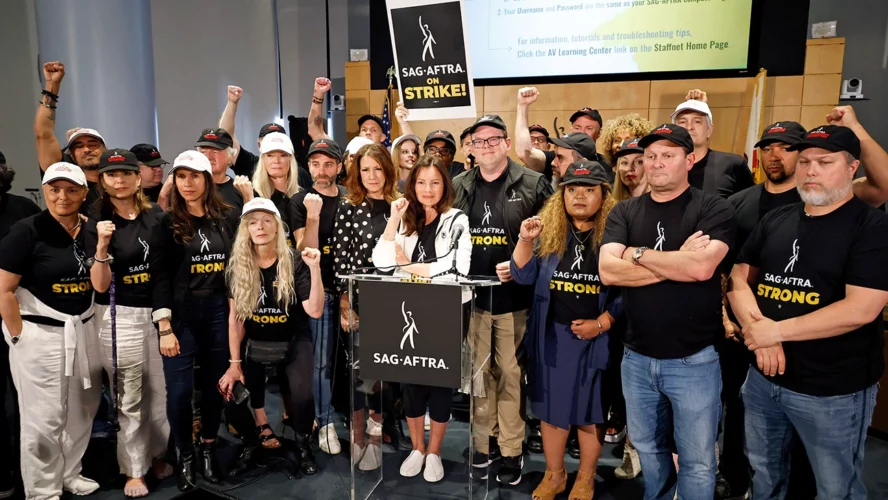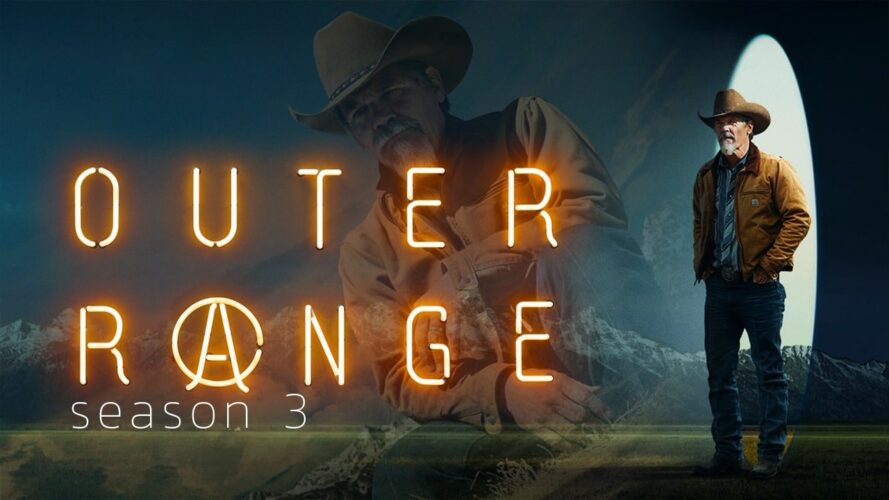In a recent interview to Matthew Belloni, Duncan Crabtree-Ireland, the national executive director of SAG-AFTRA discussed the ongoing negotiations between the actors’ guild and major studios regarding the use of artificial intelligence (AI) and fair compensation for digital replicas of actors.
In a recent amendment to Disney CEO Bob Iger’s employment agreement, a line stood out as SAG-AFTRA (Screen Actors Guild-American Federation of Television and Radio Artists) joined the Writers Guild on strike. The line stated that Iger’s target annual incentive bonus opportunity would be 500% of his base salary, serving as a success metric in his compensation.

This metric, which is a standard element in executive compensation, is now being deemed “not realistic” by Iger and was not even discussed by other studio members during negotiations with SAG-AFTRA. This situation highlights the chaos, hypocrisy, and class warfare prevalent in Hollywood today.
In the interview, Duncan responded to the comments made by Bob Iger, “I would welcome Bob to come actually participate in these negotiations,” he said. He welcomed Bob Iger to actively participate in the negotiations, highlighting the need for more involvement from executives in the decision-making process.
The director found it ironic that studios were unilaterally changing the industry’s business model while expecting actors to adhere to outdated contracts, emphasizing that SAG-AFTRA had proposed specific ways to incorporate AI and adapt to the evolving landscape of the entertainment business.
What SAG-AFTRA Demand For?
The studios had claimed to offer an “unprecedented” right to consent to an actor’s likeness being used in creating a digital performer. However, SAG-AFTRA argued that the offered consent lacked specificity and proper compensation.
Duncan Crabtree-Ireland emphasized the importance of informed consent, stating that actors should have the right to know and approve how their digital replicas are being used. He said, “The way we see it is a digital replica is like a digital double of you, and you should have every right to know what is being done with that digital double and sign off of it just like you would if it was you doing it.”
SAG-AFTRA insisted on clear consent provisions and adequate compensation for such usage, especially since actors have limited leverage to negotiate at the time of employment.
Regarding compensation, SAG-AFTRA proposed a revenue-sharing model based on the success of projects within the streaming industry. “The point is, we want a share of the revenue from streaming subscriptions, and we want it to be distributed to members based on the success of their projects within those parameters,” Duncan said. He clarified that the choice of the firm was not crucial, but rather the guild’s aim was to secure a fair share of streaming revenue for its members.
The director also addressed the perception that actors and writers were resistant to change. They emphasized that SAG-AFTRA had put forth proposals on how AI could be implemented in the industry and had acknowledged the changing landscape of the entertainment business. They criticized the studios for unilaterally changing the business model without updating contracts to reflect the new realities of the industry.
Way Forward
When asked about the possibility of a macro deal involving both SAG-AFTRA and the Writers Guild, the representative expressed uncertainty due to the differing proposals and constituencies. However, they expressed hope for a resolution and emphasized the need for participation from executives in the negotiations.
Finally, the representative mentioned that parameters for interim agreements, which would allow independent films to use SAG-AFTRA actors, would soon be published on their website. They clarified that truly independent films meeting certain criteria would be allowed to promote their work, provided they adhere to the guild’s rules.

In summary, SAG-AFTRA is pushing for informed consent and fair compensation regarding the use of actors’ digital replicas through AI. They are seeking a revenue-sharing model for streaming success and expressing the need for executives’ involvement in negotiations.
The outcome of these negotiations will not only shape the future of the entertainment industry but also determine whether the system can address the deep-rooted disparities that have plagued Hollywood for years.




